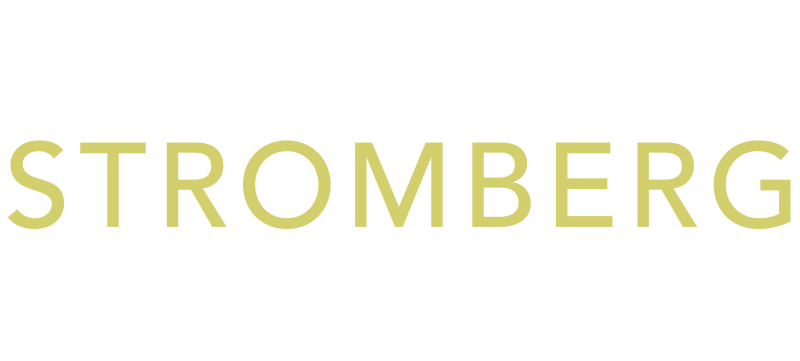When purchasing a property many people forget one important thing: how is the land I am purchasing zoned? This is relatively simple to find an answer for, and the answer can have important consequences for your ownership of the property.
In many cases the answer may seem obvious. For example, if you are purchasing a residential home in a residential neighbourhood then the land is probably zoned for residential purposes. However, the answer is not always so obvious, such as in cases involving smaller towns and villages or in rural municipalities. This is even more so the case when bare land is at issue.
Let’s consider an example: you find a bare piece of land in a small town you would like to build a home on. However, the land is zoned for commercial purposes and you do not know this. Under the municipality’s zoning bylaw residential properties are not allowed to be built in commercial zones. You have now purchased a property which you cannot use in the way you wanted. While the municipality may rezone the land to residential so that you can build your home this is not a guarantee nor is it a cheap application process for you.
Another example: you purchase a bare piece of land in a residential area intending to build a new business on it. However, if the land is zoned residential the municipality’s zoning bylaw may provide that you cannot build or operate a business in the residential zone. Again, you have now purchased a piece of land that you cannot use as you intended.
Finally, a third example: you purchase a home in a residential area intending to operate a business from the home. However, the municipality’s zoning bylaw might provide that your business can only be secondary to the use of the property as a residence. This would mean that you need to actually live in the home yourself and then you can operate your business out of the home as well. You may not have intended to live in the home at all, which will result in a property you cannot use as intended.
The above examples demonstrate why it is always important to check the zoning for the land you are purchasing with the municipality to confirm that you can use the property as you intend.
Other items to watch out for include any debts, easements, or right of ways registered against title to the property which may impact your ability to use the property. Any debts registered against the property will become your liability if the seller does not pay the debts off. A tax search for the property is also important to determine if there are any tax arrears owed. Tax arrears run with the land and would also become your obligation if you purchase the land and the seller has not paid the arrears off.
Given these risks it is always recommended that you retain a lawyer to help with your real estate transactions.
An associate at Robertson Stromberg, Curtis focuses primarily in the areas of family law, municipal law, and real estate/real property law. Curtis is a collaboratively trained and certified lawyer skilled in resolving disputes outside of the courtroom. He takes a pragmatic, no-nonsense approach to resolve disputes as efficiently and cost-effectively as possible.
The above is for general information only, and not legal advice. Parties should always seek legal advice before taking action in specific situations
Contacting a Lawyer on this Subject
An associate at Robertson Stromberg, Curtis focuses primarily in the areas of family law, municipal law, and real estate/real property law. Curtis is a collaboratively trained and certified lawyer skilled in resolving disputes outside of the courtroom.
Contact Curtis at 1-306-933-1341 or c.clavelle@rslaw.com.
Related News and Articles
Funeral expenses: Why executors should pay them promptly
This article discusses the payment of funeral expenses out of an estate, and why executors should pay them promptly. The first reason is practical. After death, the funeral home is often the first to provide a service to the estate. It disposes of the body in a safe...
New COVID Regulations
Effective October 1, 2021, the Government of Saskatchewan has introduced new regulations pursuant to The Saskatchewan Employment Act which provide private employers the option (but not the obligation) to require that their employees provide proof of vaccination or...
Saskatchewan Estate Litigation Update: Nicklen Estate, 2021 SKQB 208
The recent Saskatchewan decision in Nicklen Estate offers a reminder of the importance of making changes to your will while you still can. If you draft “notes to self” but postpone actual changes to your will, it may be too late.
Saskatchewan Estate Litigation Update: Fraser v Mountstephen, 2021 SKQB 192
The recent case of Fraser v Mountstephen offers reminder that not every irregularity with a Will can justify subjecting that Will to litigation. Background Blair Fraser died without children. He named a friend, Lori Ann Mountstephen, as Executrix. He left his entire...
Saskatchewan Estate Litigation Update: Choquette v Viczko, 2021 SKQB 167
The recent case of Choquette v Viczko offers guidance on when an executor is required to seek a beneficiary’s consent to sell land. It also explains when no such consent is needed.
Rebutting the Presumption of Resulting Trust – A Refresher
Today’s post comes from Wagner Sidlofsky LLP, a well-known estate law blog. The article talks about the importance of creating a contemporaneous evidentiary record of a parent’s intention when gifting property to their adult children.
Enforceability of Parenting Agreements by the Court and Police
Is my parenting agreement enforceable by the Court or by the police? The short answer is no – well, could it be?!Will the Court enforce my parenting agreement? Parenting agreements between parties are relevant to the determination of children’s best interests but they...
The Limitations of Bankruptcy Proceedings
As an unsecured creditor, you are often placed in a difficult position when it comes to debtors who cannot afford to pay their bills. You can seek judgment, but you are often taken in line with other unsecured creditors who do not expect to receive on their debts as...
Saskatchewan Estate Litigation Update: Bryant Estate v Stuart, 2021 SKCA 54
A recent case from the Saskatchewan Court of Appeal clarifies that a beneficiary who seeks an estate accounting is not required to show possible wrongdoing by the trustee before an accounting can be ordered. Background: The late Franklin Bryant was a beneficiary under...
ADR Options in Estate Disputes
ADR Process Options for Resolving Disputes in Estate Related Matters Estate disputes can sometimes become difficult and challenging, particularly when the dispute is among family members. There may be a disagreement among appointed executors as to how an estate should...
Estate Litigation Update: Munro v James, 2020 BCSC 1348
A 2020 decision from the British Columbia Supreme Court makes clear that an agreement to leave a gift in one’s will, is a binding agreement. As such, if one breaches that agreement, the person can be held liable even during their life.
RICS and CIArb 2021 Construction Dispute Symposium Series
Join Robertson Stromberg Partner Misty S. Alexandre on Tuesday, May 25, for the RICS and CIArb 2021 Construction Dispute Symposium series.This Symposium series will explore recent trends and emerging approaches to dispute resolution in the construction industry....

